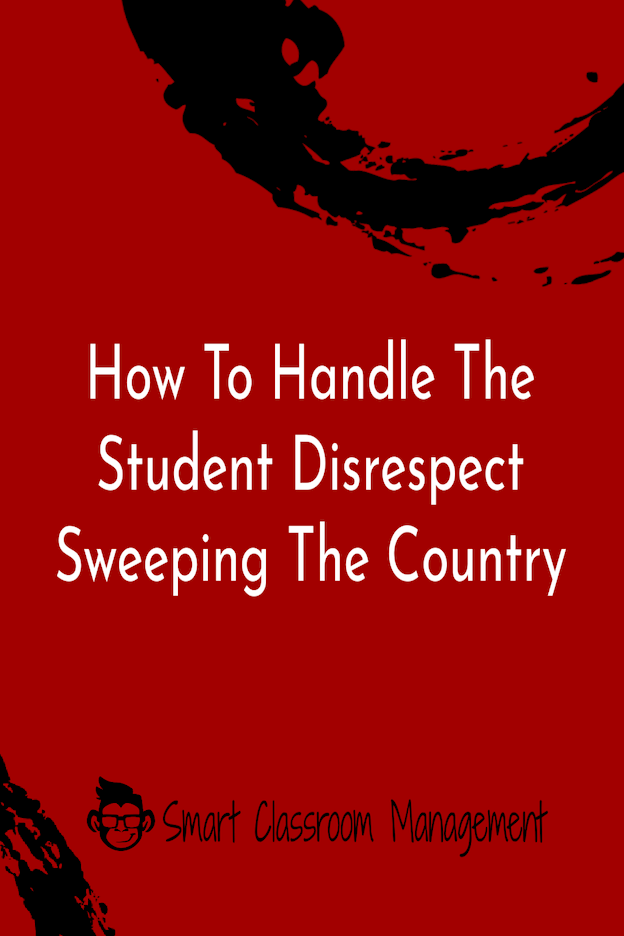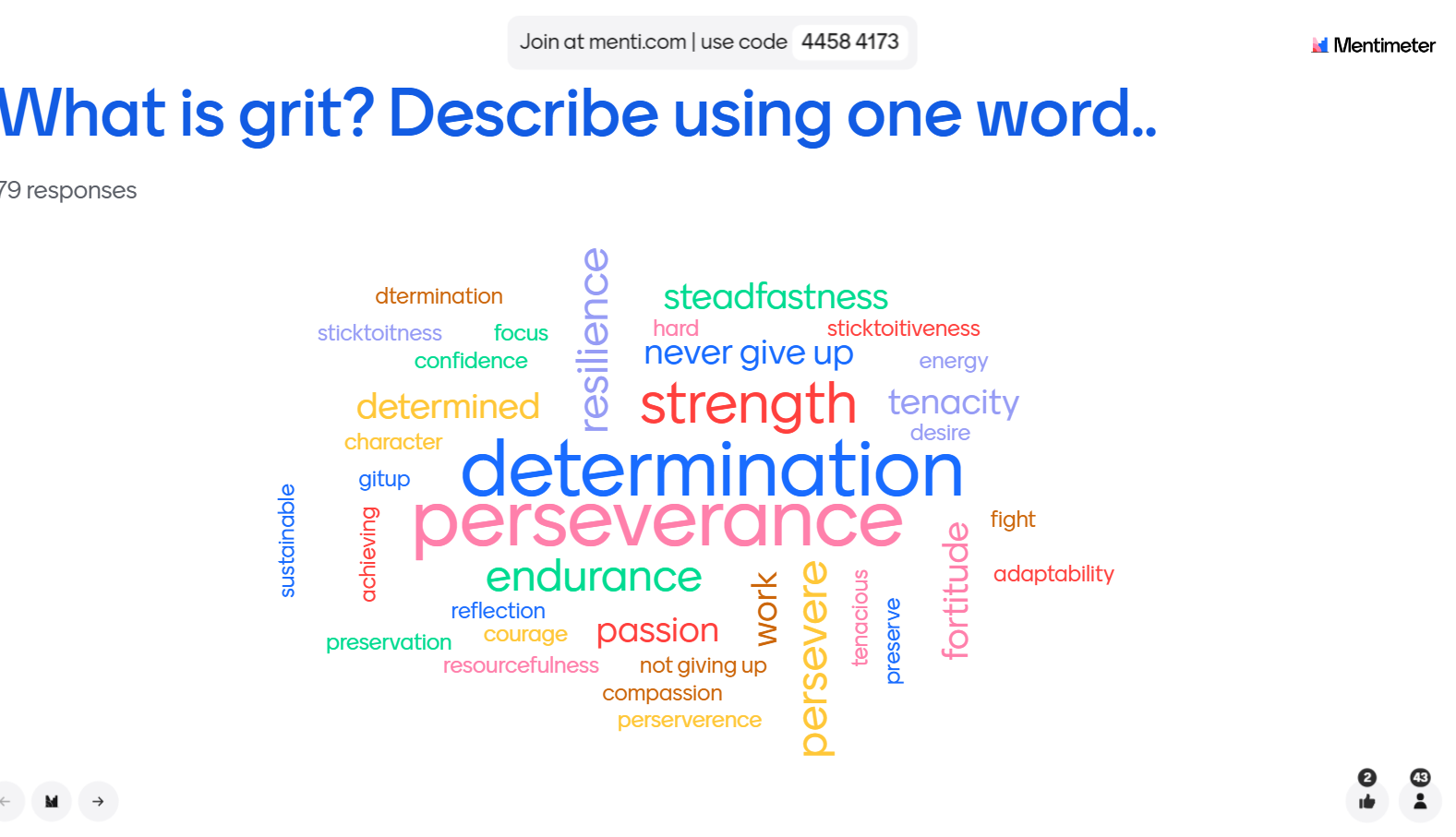How To Handle The Student Disrespect Sweeping The Country

Since returning to in-person learning, respect has taken a nosedive.
Students are just different.
We all see it. We all know it. The question is, what to do about it?
Well, the usual keys are still in play.
Clear Boundaries
100% Consistency
Calm Enforcement
Keeping your cool regardless of what a student does or says, and doing what you say you’re going to do, are now more important than ever before. Fail on this front and the battles will be constant, the disrespect unrelenting.
However, the time has come for something more.
Not strategies, per se. Those we recommend here at SCM don’t, and shouldn’t, change. It’s the way you interact with students that needs to take on greater significance.
With that in mind, what follows are seven teacher behaviors that when combined will reduce or eliminate any surge in disrespect upending your classroom.
1. Body Language
Timid and weak postures, stances, and movements don’t cut it. You must take up space by standing tall with your shoulders back and head up. Walk and move with purpose or stand still and in one place.
Face your students head on. Don’t fidget or pace. Never show displeasure or frustration. You must not only follow through like a leader, but look like one also. Thus, how you dress matters.
Your clothes need not be expensive, but clean, sharp, and pressed is a must. Some formality shows class and consistency. Sloppiness, casualness, or resembling your students does not.
2. Eye Contact
Eye contact has always been important, but now you must direct it purposefully. Turn to look at—even bore in on—every speaking student. Seek out visual connections as you teach and move about your room.
Look into students as you interact with them. Yes, they may squirm at first until they get used to a strong leader. They may feel uncomfortable.
But they’ll be far less likely to be disrespectful to you. They’ll be less likely to lie, make excuses, and shirk responsibility, which are behaviors that are also on the rise.
3. Voice
Light, hesitant, apologetic, mousy . . . Speak this way around students in the post-Covid age, and they’ll disregard you with a roll of the eyes and wave of the hand. They may even pretend you’re not there.
You must speak boldly. Use your adult voice, even with younger students. Be clear and unwavering. This doesn’t mean raising your volume, necessarily. Rather, deepen your sound and enunciate fully.
Clarity in manner and projection afford you greater esteem and politeness and will enhance your natural charisma and leadership abilities.
4. Directness
Tell students what you want and what you expect. Add nothing more. Refrain from qualifiers, suggestions, and thinking out loud. Be straightforward with your directions and instruction.
Use as few words as possible. Lean on plain yeses and nos and avoid hemming and hawing and showing uncertainty. Make up your mind quickly or tell students you’ll get back to them with your decision.
Never let them see you unsure of yourself. Vulnerability may have worked in the past, but it’s no longer helpful if you’re among the many teachers experiencing an increase of incivility.
5. Pause
Here at SCM, we’ve long promoted the importance and power of strategic pausing. Now it’s vital. Pause often and for longer periods of time than you ever have.
When you speak, let your instructions and directives hang heavy in the air. Wait them out. Let them settle. Say your peace and then zip it. Your students will regard your words with more weight and relevance.
They’ll listen better. They’ll move to fulfill your directions faster. They’ll approach you politely and with greater appreciation.
6. Listen
If a student does behave disrespectfully, do not react. Stand your ground and wait. Maintain strong eye contact. Stay silent and impassive.
Let their disrespect echo and breathe so they and everyone within earshot knows what it is. Let them feel it. Let their attention fall to you to see what you’ll do.
Then handle it with strength by simply enforcing. Offer no other reaction. Follow your classroom management plan as written, then turn and walk away. Return to what you were doing as if nothing happened.
When you show that it doesn’t get under your skin, that you don’t take their disrespect personally, students stop doing it.
7. Debrief
Here at SCM, we don’t recommend talking to students about their misbehavior—lectures, whys, questions, hash-it-outs, should-have-dones, etc.—except under certain specific circumstances.
However, many students nowadays don’t even know they’re being disrespectful. In this case, be sure to let them know later in the day that the way they spoke to you isn’t okay.
You don’t have to go on and on or show your disappointment. It isn’t a discussion. You’re merely informing, educating. It’s a courtesy for their benefit and future reference. There is no need to wait for them to respond or apologize—though they often will.
Just let them know that if it happens again, a rule will be enforced.
You, Not Them
There is a clear crises of disrespect sweeping the country. Every day it seems we hear stories from teachers of remarkable brazenness and rude behavior.
Maybe it’s the year spent at home. Maybe it’s the lack of human connection. Maybe it’s the addiction to social media and smart phones. Maybe it’s the anger and frustration that seems to be affecting everyone from airline passengers to highway drivers.
Regardless, we have to adjust.
This doesn’t mean that you can’t still have a kind and pleasant personality. You can and should still use humor and get excited about your subject matter.
But no longer can you tiptoe your way around your classroom. You can’t shrink away like a frightened wombat or allow yourself to be bullied and intimidated.
Nor can you fight against disrespect with your own brand of fire and fury. Revenge may be sweet in the moment, but it will encourage more and more of what you don’t want.
Instead, you must be a strong presence. You must be a leader of a higher purpose and plane your students can’t help but look up to.
It doesn’t take a lot, mind you.
Following the suggestions above, many of which you’re probably already doing, is enough. It’s enough to push back the wave of disrespect and bring peace to the kingdom.
But you must take charge. Not in an aggressive or angry way, but in a way that leaves no doubt that you’re the leader of the classroom.
And you, not them, set its tone and culture.





